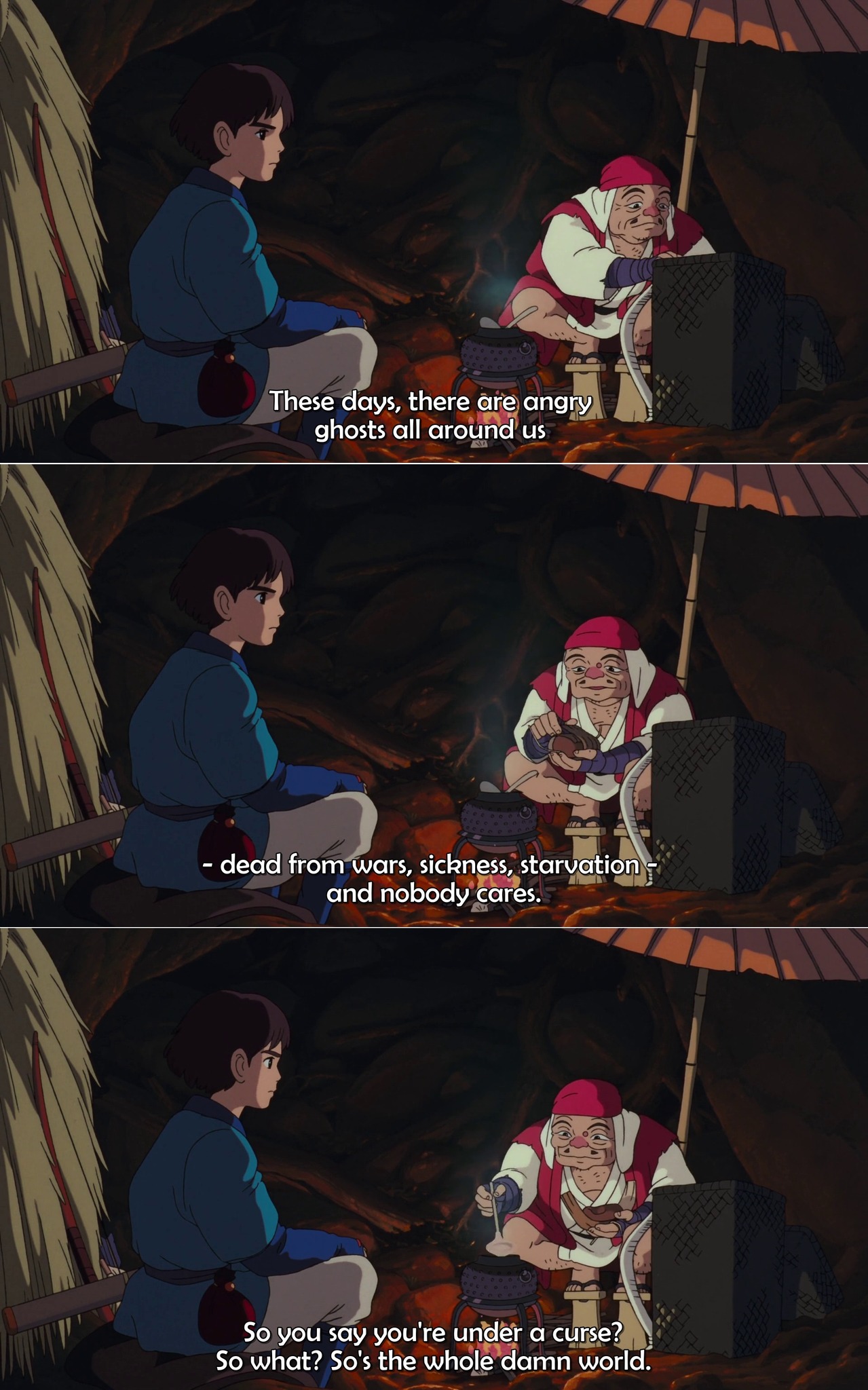this post was submitted on 08 Jul 2024
310 points (100.0% liked)
196
16460 readers
1826 users here now
Be sure to follow the rule before you head out.
Rule: You must post before you leave.
founded 1 year ago
MODERATORS
you are viewing a single comment's thread
view the rest of the comments
view the rest of the comments

It's amazing how much people complain about politics in movies when one of the best techniques for good characters and conflicts is to make each of your characters an avatar for a particular ideology which they then act out the consequences of.
This scene is a good example of presenting ideological debate: Jigo is a nihilistic opportunist, he sees the world as already lost and bad, so do what you can to survive and get ahead for yourself. Ashitaka is, as the protagonist of course, kind of a living dialectic. He must synthesize the ideas of Eboshi, Jigo (and the greater empire), and San (and the greater Natural world) together into something coherent, something he (and the audience) can act on.
And I think Ashitaka does incorporate these ideas. He isn't lost to selfishness or despair, but does come to see the conflict as a kind of overarching curse upon the minds of all involved. In carrying the physical manifestation of the curse of war, he is able to show himself as a living consequence of the price war takes upon life and the land, and uses the violence empowered by the curse as a tool to de-escalate and end conflict.
Hey I love this movie and I really dug your analysis!